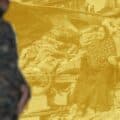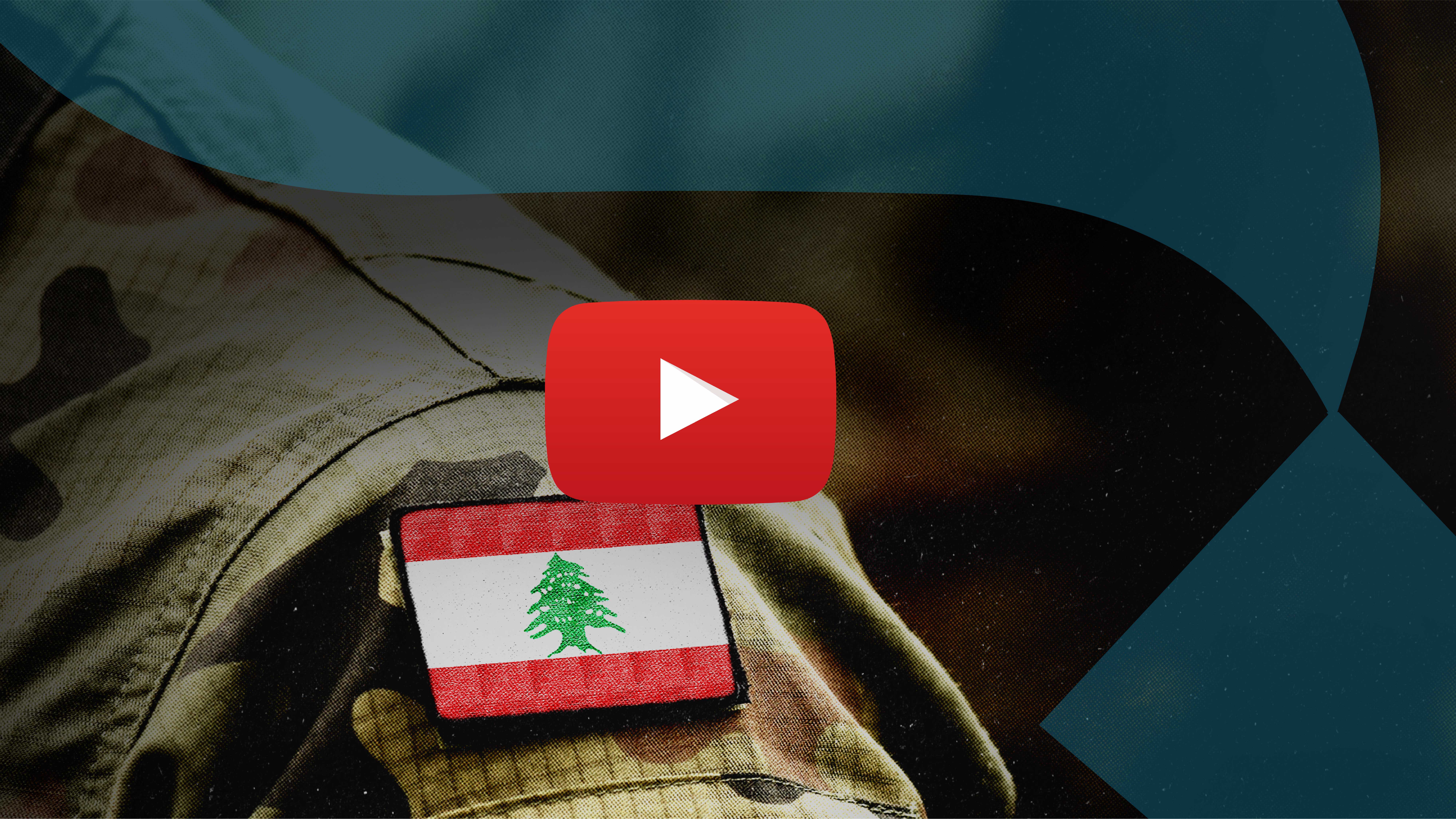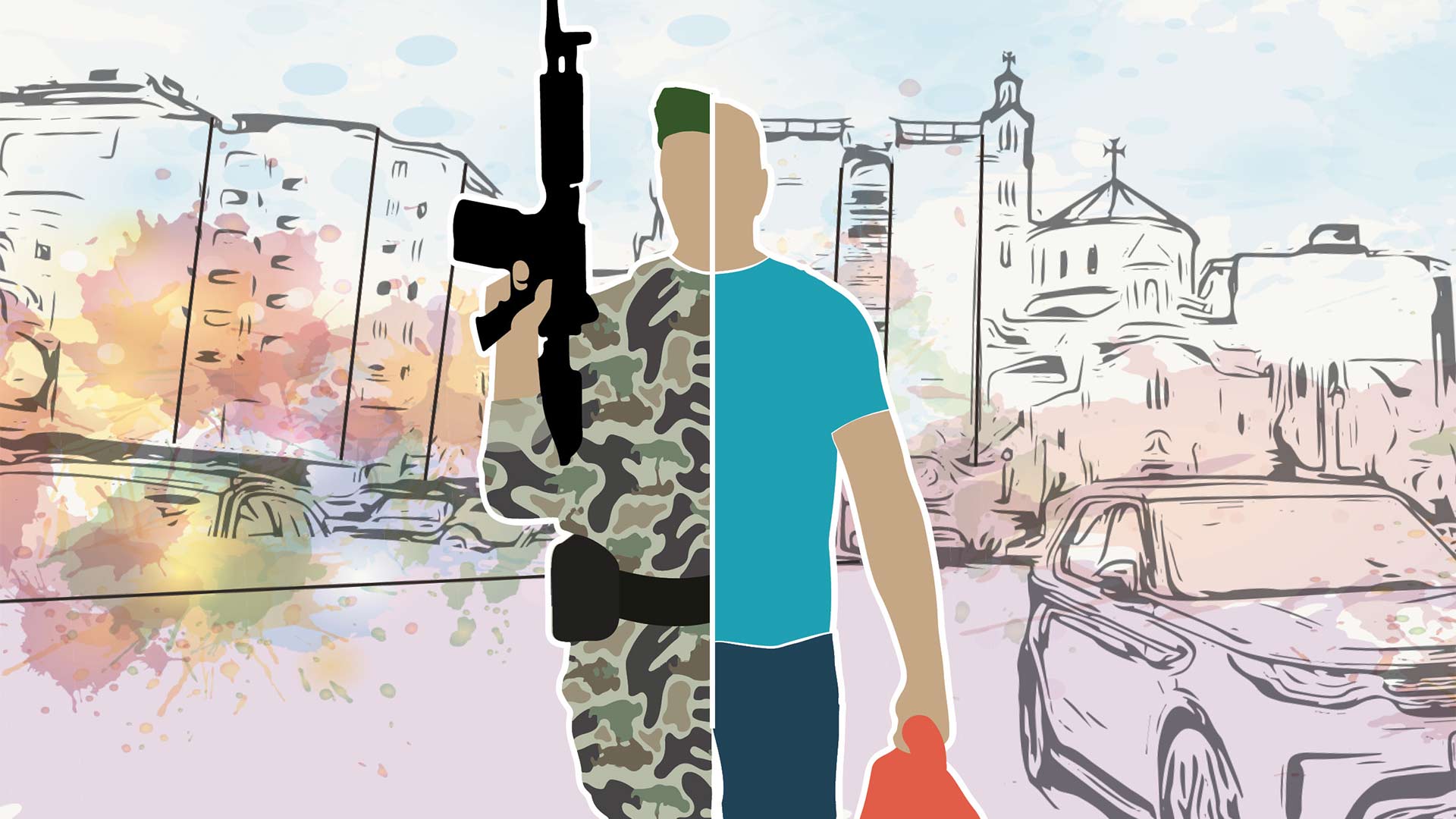Lebanon is once again on the edge of political and social disintegration, and this time, the threat may come from within. When one faction claims monopoly over legitimate resistance while another insists on the state’s exclusive right to arms, Lebanon becomes a battlefield of competing sovereignties. These irreconcilable positions are not just ideological; they are sectarian timebombs. The danger is no longer abstract. As Hezbollah’s leaders warn that internal opponents “will be confronted… just as we have confronted Israel,” political disagreement veers dangerously close to becoming a security threat.
In the months since the devastating Hezbollah-Israel war ended in a tenuous ceasefire, Lebanon has once again found itself on the edge of political and social disintegration. The agreement, accepted by all sides, including Hezbollah and brokered by Speaker Nabih Berri, a longtime ally of the group, was clear in its intent: the disarmament of Hezbollah, starting from south of the Litani River. And yet, the group’s leadership has backtracked, clouding clarity with contradiction and raising the specter of renewed instability.
Secretary General Naim Qassem’s recent speeches paint a defiant picture of Hezbollah’s posture. His message is unmistakable: the group has no intention of disarming under current circumstances. He insists, repeatedly, that “the resistance is necessary,” that “resistance works,” and that Hezbollah’s very existence is inseparable from Lebanon’s sovereignty. But in asserting that disarmament is not only premature but unacceptable, Qassem directly rebuffs the very ceasefire terms his organization endorsed.
This contradiction is more than rhetorical. It chips away at what little political consensus Lebanon still has. Qassem argues that Hezbollah’s arms are not part of the country’s internal problems, but a sacred tool of resistance that should be excluded from state monopoly. He places the burden of peace solely on Israel’s actions, arguing that until the occupation ends and attacks cease, disarmament is out of the question.
Yet Hezbollah’s own narrative misrepresents the ceasefire. Contrary to Qassem’s claims, the agreement does not limit disarmament solely to the area south of the Litani River. That geographic clause was intended as a first step, an initial phase in a broader disarmament roadmap. Hezbollah accepted an agreement that states clearly that south of the Litani is only the beginning. Nonetheless, Qassem declared, “We, as Hezbollah, as an Islamic resistance, as fighters from various groups, have committed to all the provisions of the ceasefire agreement. We enabled the Lebanese state to deploy the army in the area south of the Litani River, which is the focus of this agreement. We have implemented it for five months without any violation or transgression”, revealing a deliberate narrowing of the agreement’s intent.
Still, the picture is not one of Hezbollah’s defiance alone. While Hezbollah bears the responsibility for honoring the ceasefire agreement it accepted, which explicitly initiates a process of demilitarization, the broader failure to fully implement it has complicated the picture. Israeli violations, which have been ongoing, have weakened confidence in the agreement and offered Hezbollah an argument that its resistance remains necessary.
More alarming is the rhetoric Qassem used in his April 18 speech, where he stated, “We will confront those who attack the resistance and those who work toward disarmament… just as we have confronted Israel.” This wasn’t mere political boldness; it was a clear signal that any internal calls for Hezbollah’s disarmament would be met with force. At a time when Lebanon’s fragile political order depends on national dialogue, compromise, and a return to institutional legitimacy, this kind of rhetoric veers sharply away from any constructive path and risks turning political disagreement into a security threat.
His most recent speech, on April 28, was comparatively more restrained, but the core message remained unchanged. He reiterated Hezbollah’s three demands: an end to Israeli aggression, full withdrawal from Lebanese territory, and the release of detainees. He maintained that Hezbollah has upheld its part of the ceasefire, including facilitating the Lebanese Army’s deployment south of the Litani, while accusing Israel of repeated violations since the agreement.
Yet the Lebanese state, through President Joseph Aoun and Prime Minister Nawaf Salam, has spoken differently. Their inaugural and ministerial statements emphasize the need for the state to hold exclusive authority over weapons and to be the sole arbiter of war and peace. Their vision is clear: Lebanon’s future must be built on state legitimacy, not parallel armies.
That vision stands in direct opposition to Qassem’s. Just as U.S. Special Envoy Morgan Ortagus bluntly stated that “Hezbollah must be disarmed” and tied U.S. support to that condition, Qassem countered that such a move would “serve Israel” and provoke armed resistance.
There is a more constructive path, one that avoids both forced disarmament and indefinite exceptionalism. This begins with a phased integration of Hezbollah’s military assets into the Lebanese Armed Forces (LAF). Alongside serious institutional reform, the LAF must become a credible defense force, capable of deterring external threats. Select Hezbollah personnel and expertise could be absorbed gradually to ensure security continuity.
At the same time, Hezbollah’s civilian networks, its hospitals, schools, and welfare institutions, should be brought under state regulation. Rather than dismantling these services, the goal would be to incorporate them into national systems, ensuring accountability, continuity, and equal access for all Lebanese citizens. This would also require economic stabilization efforts, especially in historically marginalized areas that have relied heavily on Hezbollah’s parallel infrastructure.
Crucially, this transition must also address the demands Qassem continues to raise. Israeli aggression must stop. Lebanon’s occupied land must be returned. Detainees must come home. But these cannot be used as permanent preconditions to evade state authority. President Aoun has already made clear that Lebanon’s strategy includes pushing for Israeli withdrawal and halting violations. That’s precisely why demilitarization must be part of a larger national defense strategy, not postponed indefinitely until some vague future point.
If Hezbollah refuses to engage, insisting that its weapons are untouchable, then it is not defending Lebanon’s sovereignty, it is undermining it.
There is a way to bring Hezbollah’s security role into the state without stripping it of dignity or abandoning the communities it protects. But the group’s rhetoric must evolve. It cannot threaten violence while demanding legitimacy. It cannot speak of unity while setting itself above national consensus.
The way forward is neither surrender nor defiance. It is reconstruction, reconciliation, and reintegration. This means tying military reform to economic revitalization. It means moving beyond the worn-out logic that this country must always choose between chaos and captivity.
This is not a call for dismantling. It is a call for transforming.
This commentary was originally published in The New Arab



